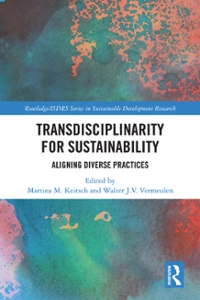Question
my question is : can leader be unorthodox in a culturally challenged environment ? Note: I need all the referances you will use to be
my question is :
can leader be unorthodox in a culturally challenged environment ?
Note: I need all the referances you will use to be in APA fourm please .
my article is :
Introduction One of the most commonly used terms for cultural intelligence (CI) is "cultural quotient" or "cultural intelligence" (Mindtools, n,d). More than simply learning about a new culture, cultural intelligence requires the development of a new framework for interpreting what individual experiences and sees in that culture. In 2006, (Earley et al., 2006). A leader's grasp of culture and intercultural work will be significantly enhanced by cultural intelligence in four areas: reframing, adaptive work, systems thinking, and awareness. REFRAMING In intercultural initiatives, reframing helps a leader shift from mindlessness to mindfulness by supporting the embrace of diverse perspectives. Cultural orientation shifts from unfavorable attitudes about the culture of others to more positive ones (Cultural intelligence for Leaders 2012). ADAPTIVE WORK Cultural intelligence demands leaders to adjust their values, beliefs, or conduct to adapt. Different cultural groups hold contradictory values, and leaders need to lead through this to ensure that people's beliefs are aligned with reality. A leader's cultural dissonance can also be addressed through adaptive work, which allows them to examine the values they hold against their actual practice and devise ways to deal with any dissonance (Cultural intelligence for Leaders 2012). INTERDEPENDENCE Understanding how different parts of an organization work together to achieve a common goal is made possible by interdependency. A leader who grasps the concept of interdependence will be able to appreciate the beauty of difference. CONSCIOUSNESS Their level of consciousness enhances a leader's ability to see that opposites do not conflict. As a result, a leader is better able to maintain a holistic perspective on one's well-being and the well-being of others and the environment (Cultural intelligence for Leaders 2012). HOW CAN LEADERS REFRAME THEIR THINKING WHEN INTERACTING WITH PEOPLE OF DIFFERENT CULTURES? Reframing is the concept that a leader's cultural view should be shifted from a single perspective to several perspectives instead. People who understand the cultural values of others have a clearer picture of what is going on and know what they need to do to attain their goals. Learning about other cultures and overcoming cultural biases about people from other cultures are two ways to accomplish this. In addition, employees' interpersonal interactions will improve due to this. HOW A LEADER CAN UTILIZE ADAPTIVE WORK TO ADJUST THEIR THINKING Leading with empathy, navigating corporate settings, learning from mistakes, and reflecting on them are just a few ways adaptive work may help managers hone their skills as change agents (Lucas, 2020). Thus, the leader will be able to adjust his thinking and become a culturally competent leader. HOW CAN LEADERS DEMONSTRATE INTERDEPENDENCE? For culturally aware leaders to reap the benefits of interdependence, they must be clear about their objectives in dealing with cultural groups, people, and processes. Leaders can demonstrate interdependence by realizing that people are different and stressing the importance of interdependence and inclusiveness in the workplace. It is possible to tap into these differences depending on strengths; the team may perform more with less and be more effective when this is done (Crampton,2017). THE IMPORTANCE OF CULTURAL CONSCIOUSNESS TO THE SUCCESS OF A LEADER More culturally sensitive leaders have a better understanding of the world around them. If you want to be an effective and culturally savvy leader, you need to learn more about your coworkers' cultural orientations and how to deal with cultural dissonance. This will lead to an improvement in team unity and cooperation. REFERENCES Mindtools (n.d). Cultural Intelligence; working confidently in different cultures. https://www.mindtools.com/pages/article/cultural-intelligence.htm Earley, P., Ang, S., & Tan, J-S. (2006). CQ: Developing cultural intelligence at work. Stanford, CA: Stanford University Press Cultural Intelligence for Leaders (v. 1.0). (2012, December 29). Lardbucket. https://2012books.lardbucket.org/pdfs/cultural-intelligence-for-leaders.pdf Lucas, S (2020, October 4). How to Use the Principles of Adaptive Leadership in the Workplace. https://www.thebalancecareers.com/using-principles-of-adaptive-leadership-in-the-workplace-4161276 Crampton, D (2017, December 28). Interdependence Promotes Successful Diversity. Retrieved from: https://corevalues.com/diversity/diversity-2/interdependence-promotes-successful-diversity/
Step by Step Solution
There are 3 Steps involved in it
Step: 1

Get Instant Access to Expert-Tailored Solutions
See step-by-step solutions with expert insights and AI powered tools for academic success
Step: 2

Step: 3

Ace Your Homework with AI
Get the answers you need in no time with our AI-driven, step-by-step assistance
Get Started


